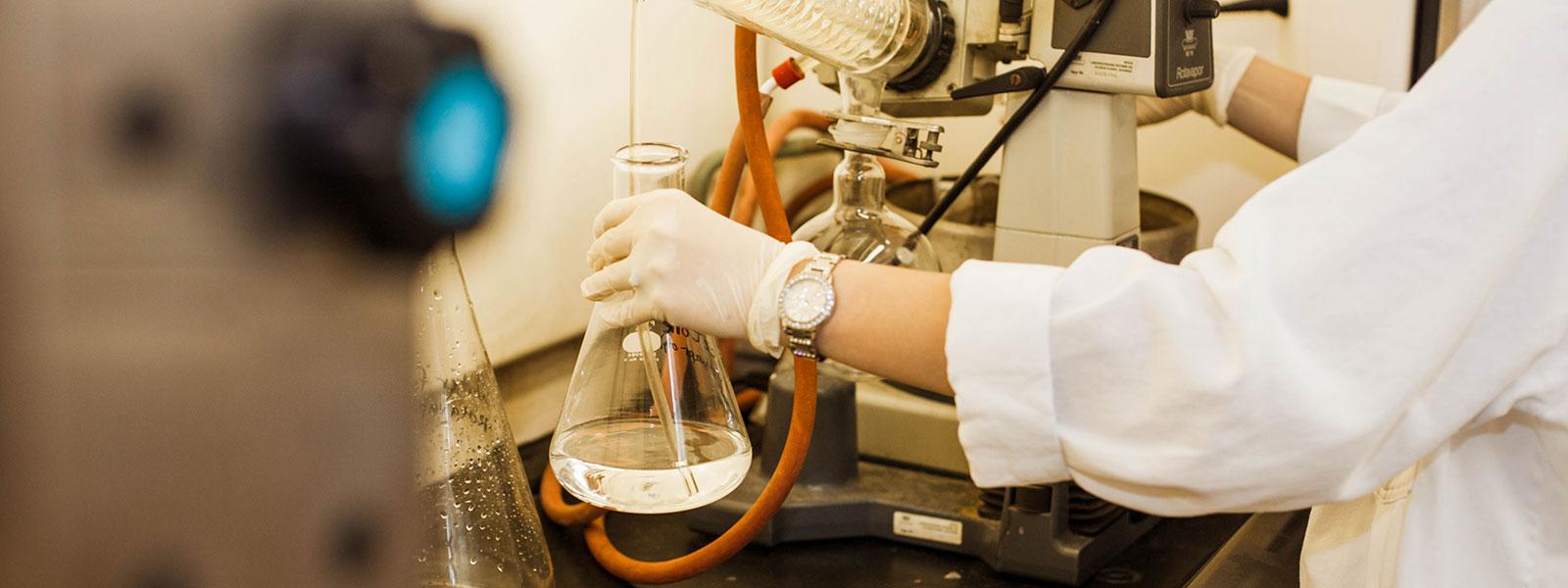Course Details
Your Growth, Our Mission

Course Description
The Training Course Will Highlight ?
Training Objective
Target Audience
The course is of interest for all Laboratory staff, Chemists and technicians
Training Methods
This interactive Training will be highly interactive, with opportunities to advance your opinions and ideas and will include;
- Lectures
- Workshop & Work Presentation
- Case Studies and Practical Exercise
- Videos and General Discussions
Daily Agenda
Module One: Basic Chemistry
•Introduction
•Chemistry Historical and review
•Basic Principal and theory
•Atoms (Structure, Atomic weight (mass)
•Elements (Periodic table, Structure of Elements, Metals, non-metals, Isotops,….)
•Ions (Types, Valency, Radicals, Solubility,…,)
•Matter (Electronic Structure, States, Physical Properties,…..)
•Chemical Bonding (Ionic, Covalent, Hydrogen, and Metallic Bond)
•Molecules and Compounds (Molecular weight, Mole and Molarity,…)
•Solution (Mixture, Compound, Physical Behavior, Standard Solution,…)
•Solvent (types and properties)
•pH of Solution (Acid, Base, Salt Solution, Stability, pH Indicators, Buffer Solution,…)
•Chemical Reactions
•Light, Photon Energies, and Atomic Spectroscopy
•Units for Expressing Concentration (Percent weight & Volume,…)
Module Two: Analytical Chemistry & Instrumental Analysis
•Basic Principal and theory of Analytical Chemistry
•Analytical Chemistry and Chemical Analysis
•Type of Chemical Analysis Methods
❖Classical Methods
▪Semi micro Qualitative Analysis
▪Gravimetric Analysis
▪Titrimetric (Volumetric) Analysis
❖Instrumental Analysis
▪Spectroscopy Analysis
▪Chromatography Analysis
▪Electrochemical Analysis
Module Three: Analytical Chemistry & Instrumental Analysis
•Instrumental Calibration, and Standardization
❖Instruments Calibration and Traceability
❖Calibration work instructions
❖Calibration Procedures, Certificate, and Documentation
❖Reference Standard Materials
❖Correction of errors and improving Blank
❖Measurement Uncertainly in testing and calibration
•Laboratory Equipment
•Problem, troubleshot and Routine Maintenance
•Comparing Instrumental Techniques
•Choosing the Right Instrument
Module Four: Oil & Gas Analysis
•Petroleum Composition and its Properties
•Classification of crude oil types
•Physical & Chemical Properties of crude oil
•Hydrocarbons Laboratory
•Sampling & Sample preparation for Oil & Gas
•Evaluation of Crude Oil
•Crude Oil & Petroleum Products analysis
•Hydrocarbon Gases Handling & Analysis
•Testing and Analysis of Natural Gas
•Standard water and wastewater analysis
Module Five: Quality Control & Quality Assurance
•The Evaluation of Results and Methods
•Statistical Data Analysis
•Laboratory Report
•Laboratory Certificate
•Quality Control and Quality Assurance
•Laboratory inter-comparison
•Proficiency Test PT program
•Laboratory Assessment & Accreditation
•Implementation ISO 17025
Accreditation
BTS attendance certificate will be issued to all attendees completing minimum of 80% of the total course duration
Quick Enquiry
Request Info
Related Courses
Your Growth, Our Mission

